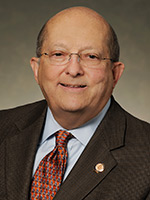Today's the day for the U.S. government to open the books on pharma payments to doctors. The Sept. 30 deadline has arrived, and the payment data mandated by the Sunshine Act will soon be public.
Be prepared to hear a host of caveats, both from the government and from healthcare industry leaders. The Centers for Medicare and Medicaid Services has already said it will hold back about one-third of the payment data because it wasn't coded properly. And PhRMA, doctors, individual drugmakers and plenty of others have taken shots at the data-collection process.
Will the database be fraught with mistakes? Will individual doctors gnash their teeth when their numbers don't match up? Will drugmakers and trade groups say, "I told you so" when research grants show up as large payments to individual doctors? Will doctor-speakers drop out of pharma-sponsored dinners because their sizable fees go public?
Probably all of the above, and more. The data is sure to touch off more debate about the ethics of industry payments to doctors, large and small. Doctors resent the implication that free meals sway their prescribing decisions.
 |
| Dr. Eugene Sherman |
"There is this supposition that a relationship [with industry] alters a physician's judgment," Dr. Eugene Sherman of the American College of Cardiologists told Medscape Medical News. "In cardiology, we don't believe that is the case 99% of the time."
Drugmakers want to keep their access to top experts who speak to other physicians about their drugs. And industry leaders say, quite rightly, that up-and-up collaboration with clinicians is important to patient care and research.
Here's a sample of the worries out there: The Healthcare Leadership Council, a coalition of groups most worried about the Sunshine Act data release, released a statement reiterating its demands for some "proper context" for the dollar amounts the public will see. Among its members is a who's who of Big Pharma, plus payers and healthcare providers.
"If the only information conveyed to the public and media regarding transfers of value between manufacturers and physicians involves dollar amounts--without a full, adequate explanation of the benefits generated for the public as a result of those interactions--there are legitimate concerns on the part of physicians that they will be unfairly stigmatized and lose the faith and confidence of their patients and the public at large," the group's president, Mary Grealy, said during Congressional hearings this summer.
Another varied group wrote CMS administrator Marilyn Tavenner urging her to be careful about explaining today's release to the public, given the payment data withheld because of coding glitches. Dispatched yesterday, the letter applauds the idea of payment data going public, but says "the partial nature of this release" means people need to be cautious about drawing conclusions.
"In particular, any comparisons between named individuals will be limited by the possibility that not all transfers of value will have been published in an identifiable form," states the letter, signed by officials from Eli Lilly ($LLY), The Pew Charitable Trusts, and Community Catalyst. "We encourage CMS to include a clear and direct description in its public communications about the reasons for why portions of the data are being initially withheld."
Meanwhile, despite the data's flaws, it's important for people to see it--and for the Sunshine to potentially change behavior, watchdogs say. A perennial critic of industry influence on prescribing, Adriane Fugh-Berman of Georgetown University Medical Center, maintains that payments are persuasive, regardless of their size.
"[I]t's the relationship," she told Medscape, going on to point out that drug and device makers spend billions to recruit doctor-speakers. "If this didn't work, they wouldn't be doing it," Fugh-Berman said. "Believe me, the companies have data on how effective this is."
- read the latest letter to CMS
- get more from Medscape Medical News